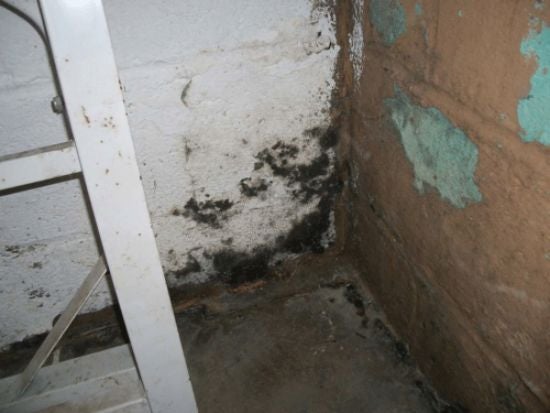-
What You Need to Know About Mold from Basement Flooding
What You Need to Know About Mold from Basement Flooding
The first thing you need to check for after a flooded basement is mold and fungus growth. Not only can mold cause serious health issues for you and your entire family, but if you let it get out of control and invade your home it can be incredibly difficult to get rid of.
The best way to prevent mold is to avoid leaks, floods and humid and musty air.
It’s important to educate yourself about what mold and mildew is, where it grows, why it grows and how you can prevent it from growing in your home and basement.
If you do however find mold in your home you also need to know how to get rid of it effectively, how to sanitize your home properly, and protect your home from future growth.
We’ve put together a comprehensive guide to help you understand mold and mildew and how you can prevent them from invading your home.

Understanding Mold
What is mold?
Mold and mildew are fungi. Fungi are neither plant nor animal and there are approximately 100,000 species of fungi that have been detected worldwide. Mold is found in humid and wet areas, such as a wet basement and is different from organic mold found in the great outdoors.
While mold and mildew are both fungi and they send their spores flying through the air there is a difference between the two. Mildew is commonly grey or white while mold is usually black, red, green, brown or a combination of these colors.
Why is mold bad?
Mold thrives in damp and humid environments and as it grows it releases spores into the air, which can make people very sick if inhaled. Toxic mold can irritate your eyes, and your respiratory system and cause very unpleasant odors in your basement. Mold exposure can lead to allergic reaction symptoms such as sneezing, running nose, itchy eyes, congestion and even skin irritations. Mold can trigger asthma attacks and cause serious problems for individuals who have weakened immune systems. Mold will also eventually destroy the things it grows on.
Where does mold come from?
Mold spores can get into your home through open doorways, windows, air conditioning and heating systems and any other open spaces that lead into your home. It is also possible for spores to attach themselves to clothing, shoes and pets.
Once these spores settle into a space where there is extensive moisture, such as in a leaky basement, they will grow and they will grow very quickly.
Wet materials including paper, cardboard, ceiling tiles, wood and various other products encourage many different types of mold to grow. Other materials such as paint, wallpaper, drywall, carpet, insulation and upholstery also easily support mold growth if there is moisture and humidity in the area.
Some of the most common indoor molds include:
- Penicillium
- Cladosporium
- Aspergillus
- Alternaria
Dealing with Mold Issues
How to get rid of mold
If you find mold in your basement it is important to take care of it right away by removing the infection and sanitizing the area. If you find mold on furniture or carpets it’s safer to completely remove and replace these items instead of trying to save them. There are a number of commercial brand and natural products that can be used to remove mold from hard surfaces.
One of the best ways to get rid of mold in your basement is to tear out the contaminated areas and replace them with fresh materials. If you can’t do that then you can just as effectively remove the infection with bleach, borax and vinegar. Bleach reduces the mold count and neutralizes harmful bacteria, but it doesn’t completely kill it. Another solution for removal is vinegar or borax.
After you have checked every corner and crevice in your basement for mold and cleaned it all out, then you have to go back and make sure to sanitize each area multiple times until you are satisfied that everything is clean. Once your basement is clean make sure it gets completely dry…otherwise you may end up with another mold problem sooner than you expect.
Prevent future mold growth
Keep your basement mold-free by installing dehumidifiers and keeping the humidity in your home low.
If your home is prone to basement flooding then you also need to invest in basement waterproofing services to keep the area dry.
If you have any questions about mold and mildew, how to find it, evict it and prevent it don’t hesitate to contact the experts at Triad Basement Waterproofing. We have been dealing with basement issues and mold for more than 27 years and we guarantee that we can help you keep your home and basement in tip-top shape year round.
